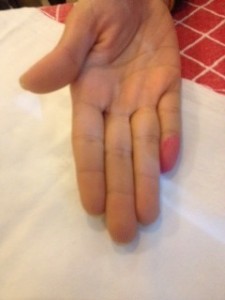In Egypt, it's hard to find anyone -- or anyone who knows anyone -- who voted against the new constitution. I've only heard of two instances: a couple of Christians who thought the new constitution still gave too much primacy to Islam and a person who approved of the constitution but voted no in an effort to give the result an air of legitimacy and make it appear that the vote had been less lopsided.
This week marks the third time in three years that Egypt has voted on a new constitution, and most human rights analysts agree that the new 247 article constitution is the best. While it contains worrying provisions about military trials for civilians, the military's choosing the Minister of Defense, and other concessions to the military on oversight of its budget and other operations, it also includes articles on the freedom of expression and religion, better safeguards against discrimination, and provisions to improve women's political representation at local levels (with a 25 percent quota introduced).
The military-backed government has taken every chance to present the referendum as a corrective measure that will restore normality after the "aberration" of the Jan. 25, 2011, revolution and the ensuing tumult. Leading up to the referendum, the state and privately owned media were in full support of the Vote Yes campaign, with virtually no air time or ink given to anyone who wanted to make a case for voting no. People found putting up "No" posters were arrested and judging by early results, almost all of those who were against the new draft boycotted the process.
On Tuesday, the first day of polling, local NGO the Cairo Institute for Human Rights produced an evaluation of media coverage of the referendum by 20 press outlets. It noted "intimidation of citizens participating in the referendum," and charged that "the media became a one-note mobilization campaign, with the only dissonant note offered by al-Jazeera Mubasher Egypt [which itself] has also failed to provide professional impartial coverage of the referendum process."
Figures of a 90-plus percent approval in the vote are easy to believe. Much of Egypt's electorate, fatigued by years of instability, went to the polls hoping that a new constitution is a step towards an end to political uncertainty. The Egypt Gazette's front-page story on January 15 quoted Nemaat Hassan, a "nurse, and a mother of a disabled child' as saying that she voted yes because the constitution "protects the interests of women and children, and defends the marginalized and handicapped people," while Nadia Ezzat voted yes to "restore stability which has been lost since the downfall of former President Hosni Mubarak in 2011."
As the novelty of showing off the "I've voted" pinky-purple finger is wearing off, early estimates put voter turnout at between 30 and 40 percent (compared to 33 percent for the 2012 referendum and 41 percent in 2011). While the bomb near a polling station in Cairo on the first morning and the reports of 444 arrests across the country in relation to the poll might have given pause to some voters, the widespread disruption by supporters of ousted president Morsi that was predicted by some didn't materialize. The 30,000 polling stations were protected by heavy security, with press reporting 300,000 soldiers and 160,000 police out in force. Tanks were on prominent show in Cairo city center.
With the referendum behind it, Egypt will hold presidential and parliamentary elections later this year, which will bring back democracy (excluding the Muslim Brotherhood). The overwhelming yes vote on the constitution this week sets up Defense Minister General Sisi for a presidential bid in the coming months, and the job appears his for the taking. Much of the country remains in hero-worship mode toward Sisi after his part in seeing off President Morsi last July. Political discussion now moves to whether Sisi wants the possibly poisoned chalice of the presidency, or whether he will remain the power behind the throne, but it's hard to find anyone who knows anyone who thinks he wouldn't win if he runs.

